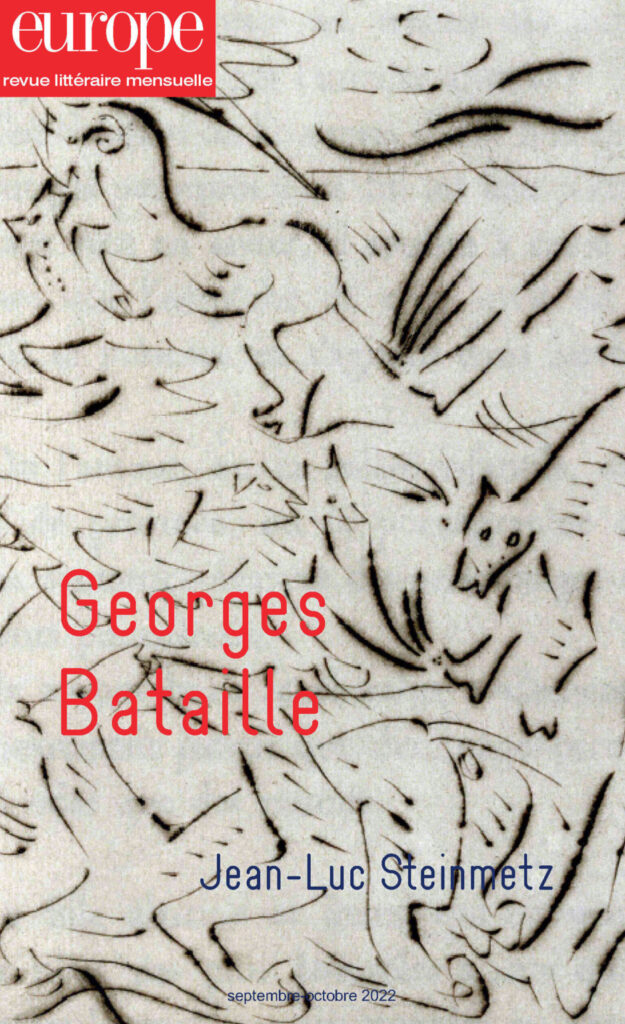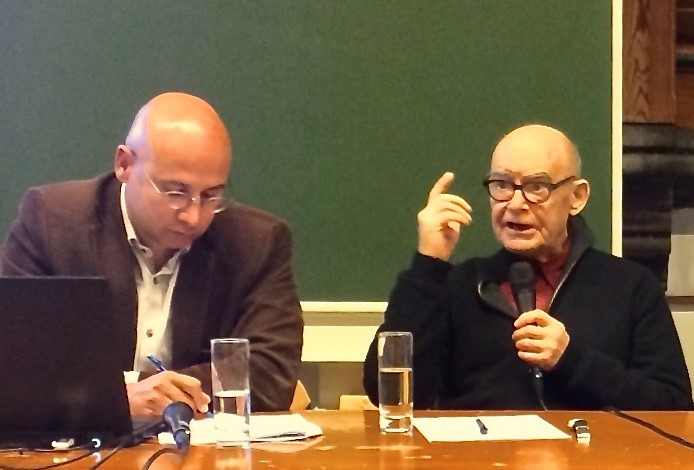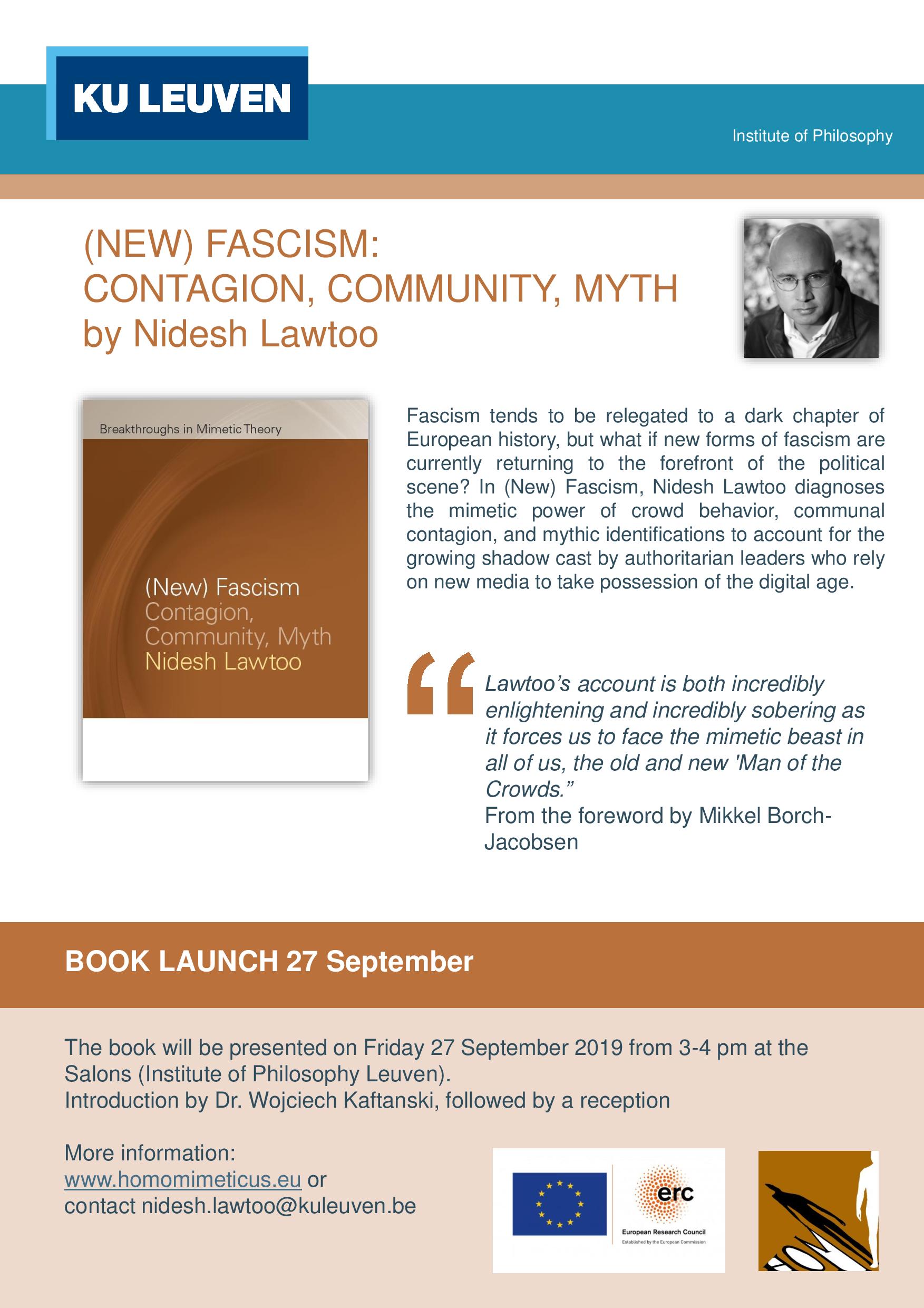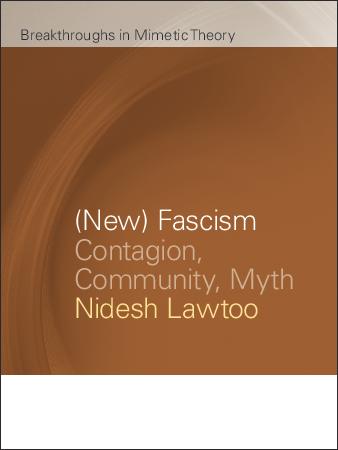What’s in a voice? And if the echoes a voice generates are neither
singular nor plural but singular plural, what shared voices are at play in
Jean-Luc Nancy’s untimely reflections on the affective participation, or
methexis, animating the agonistic confrontation between philosophy and
literature? Part of a dazzling collection of essays thinking with Nancy, in this chapter Nidesh Lawtoo reveals the partage des voix internal Lacoue-Nancy. Chapter available HERE.
Tag Archives: community
Georges Bataille 60 years after

In this special issue of Europe, edited by Stephane Massonet, prominent Bataille scholars including Denis Hollier, Michel Surya, Jean-Christophe Bailly, Mathilde Girard, and others testify to the timeliness of this untimely thinker. Nidesh Lawtoo adds a chapter on Bataille’s mimetic community.
Jean-Luc Nancy on The Myth of Community
Jean-Luc Nancy is internationally known for launching the concept of “community” on the philosophical scene. But what is the mythic experience that gave birth to his community in the first place? Where was this scene set? And who are its protagonists? In this singular-plural Prelude shot in the summer of 2020, Nancy begins to narrate the myth of the Strasbourg community to Nidesh Lawtoo, addressing a world that “is soon going to disappear”…
Adieu, Jean-Luc Nancy

The French philosopher Jean-Luc Nancy (1940-2021) sadly passed away on August 23, 2021, at the age of 81. One of the last giants of the structuralist and poststructuralist generation, Nancy authored over 200 books on subjects as diverse as German idealism and psychoanalysis, aesthetics and politics, subjectivity and community–devoting one of his last books to An All-Too -Human Virus (2021).
Nancy last visited the HIW in 2018 at the invitation of the HOM Project and gave a series of inspiring talks, seminars and interviews on mimesis, politics, and community. He will be much missed, but his philosophical traces remain to be followed up.
You can rewatch two video interviews at the HIW on HOM Videos, including one for VETO. More recently, in a written dialogue with Nidesh Lawtoo, Jean-Luc Nancy takes the recent return of attention to mimesis, the mimetic turn, as a starting point for considering the relationship between philosophy and literature. Reflecting on his lifelong philosophical project, Nancy stresses the centrality of mimesis at play in the linguistic turn, deconstruction, community, and sharing during and beyond Covid-19. Interview available here.
HOM Videos, ep. 5. Philosophy and Mimesis: Jean-Luc Nancy (Trailer)
In the fifth episode of HOM Videos, Nidesh Lawtoo meets French philosopher Jean-Luc Nancy (U of Strasbourg) to discuss the ancient quarrel between philosophy and mimesis. Topics discussed include the relation between mimesis, myth, fascist politics, Lacoue-Labarthe, deconstruction and community.
Book Launch–(New) Fascism: Contagion, Community, Myth (N. Lawtoo)
In this new book, part of the ERC-funded HOM Project, Nidesh Lawtoo confronts the rise of (new) fascist leaders, both in Europe and the US, via a diagnostic of the contagious, communal and mythic powers mimetic leaders convoke to shape mass/public opinion.
Dr. Wojciech Kaftanski presents (New) Fascism and opens the conversation with the author on Friday 27 September, 3-4pm, Salons, Institute of Philosophy, Kardinaal Mercierplein 2, 3000 Leuven. Reception to follow.
(New) Fascism: Contagion, Community, Myth
Fascism tends to be relegated to a dark chapter of European history, but what if new forms of fascism are currently returning to the forefront of the political scene? In (New) Fascism: Contagion, Community, Myth (August 1, 2019) Nidesh Lawtoo diagnoses the case of Trump to illustrate the (un)timeliness of Nietzsche’s claim that, one day, “‘actors,’ all kinds of actors, will be the real masters.” Preview and order here.
Review
“The book is a testament to the power of reasoning to unmask and resist cruel forms of affective contagion, even as it opens the door to the project of composing generous and laudable admixtures of pathos and logos. A bracing and elegant book very much worth reading.”
—JANE BENNETT, Professor, Department of Political Science, Johns Hopkins University, and author of Vibrant Matter: A Political Ecology of Things


